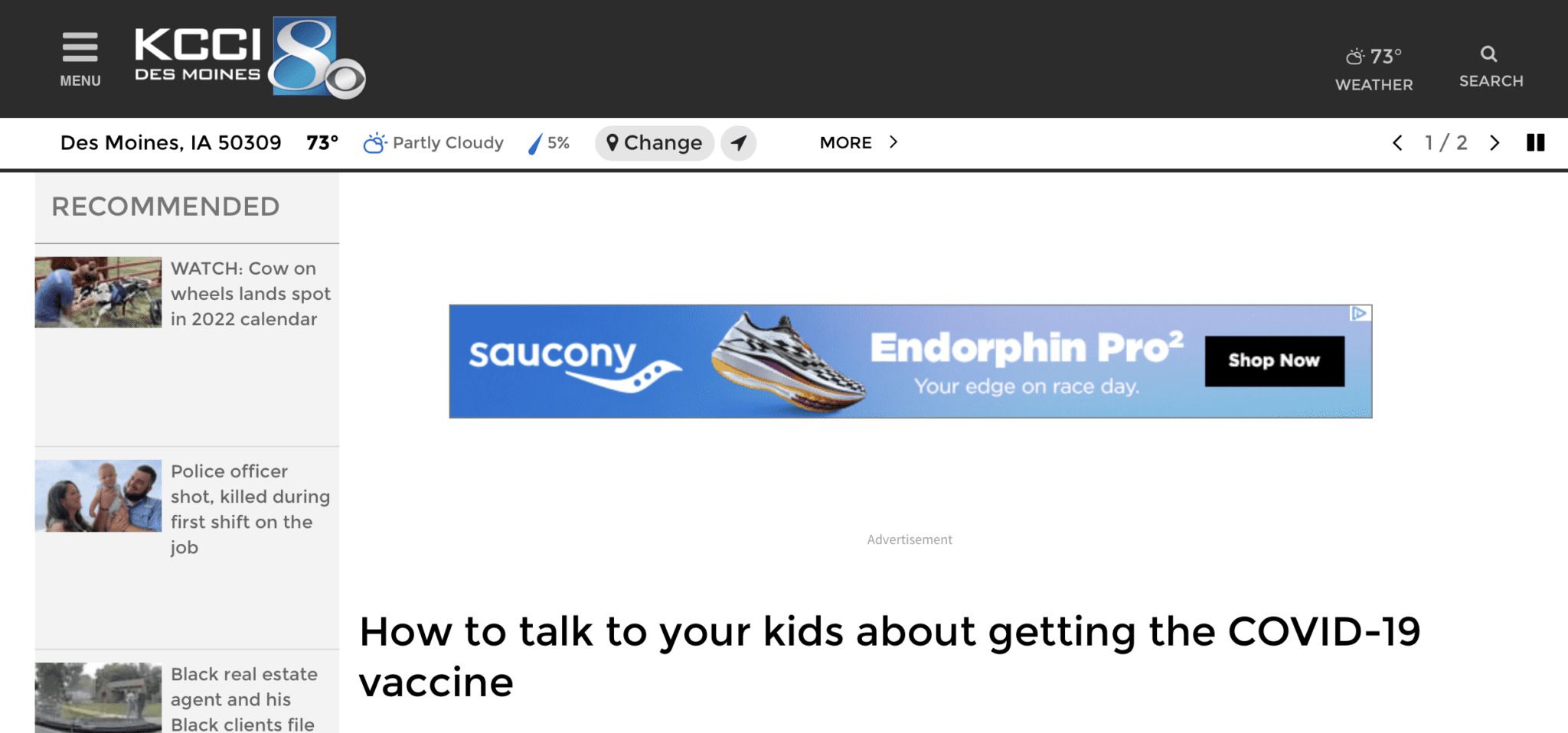Kids always want to know, “Am I going to be OK?” As parents, we need to be able to give them honest and reassuring answers. The data on the dose for 5- to 11-year-olds is not out yet to be scrutinized, but based on our experience with the other vaccines, we hope we’re going to be able to say, “Yes, this is very safe, and yes this will keep you from getting sick.”
You want to be honest. You want to say, “You know what, it’s going to hurt just a little bit, but it’s not going to hurt as bad as some other things that happen to you all the time — like falling down when you’re running or stubbing your toe.”
Then, you want to give children a sense of control, a sense of power, a sense that they are doing something that matters. Talk about what they can do: “You like to play baseball and you’re right-handed, right? Maybe you want to have the shot in your left arm instead of your right.”
Talk in advance, too, about what they can do so that they don’t notice the pain: “Do you know that if you take a breath and blow out really slowly things hurt less? They also hurt less if you’re singing or if you’re holding my hand.” There are a lot of things that you can do, from distraction to breathing to thinking pleasant thoughts to talking about something else. All these things make a difference.
If you can reassure children that yes, you’re going to have control, and yes, it’s going to hurt a little, but we’re going to help you keep it from hurting as much as you think, those things can be very helpful.
CNN: Kids want to know whether they can go on playdates with their friends, visit their grandparents over the upcoming holidays and take pictures with Santa. Do we know yet if that will be possible for vaccinated children?
Hill: Much of the answer to that question is going to depend on how the entire community responds. When community transmission rates are very low, a lot of things become very safe. It will also have to do with how effective the vaccines for children are, but it will probably have more to do with how many people get the vaccine and how much care we take with distancing and keeping our masks on, until we get these numbers down so low that the general risk is within a tolerable number.
I certainly hope that over time, we’re going to see that these vaccines in younger children are super effective, so effective that we can stop taking other precautions. But I think it will really depend on everybody doing their part and squashing this virus to just a point where it’s no longer a major threat.
CNN: Will children be able to stop wearing masks at playdates if everyone present is vaccinated? What about at school?
Hill: I don’t think we will be able to forgo masks until this virus is more tightly controlled. Right now, we are seeing with the transmissibility of the Delta variant that even vaccinated people can get Covid-19. The vaccine is extraordinarily successful at preventing people who have received it from being hospitalized or from dying from Covid, but it is certainly possible to get a post-vaccine case of the virus.
If you are outside of the family unit or at a small space indoors, you do want to wear a mask. And that is what we are doing now, even if you are vaccinated. There was that brief moment before the Delta variant when community transmission rates were really plummeting, and the protection of the vaccine seemed to be high enough so that if you were with another fully vaccinated person, you could drop your mask.
Delta changed all that and sent us backwards, as did this third wave where the virus was becoming very prevalent in the community again. And so we had to step it back a little bit there and go back to using masks.
For the moment, I think the masks are still the rule, but that depends again on community rates of transmission. When community rates get low enough, hopefully we will all rip our masks off and go back to sitting close together in small spaces.








Join the conversation!
Please share your thoughts about this article below. We value your opinions, and would love to see you add to the discussion!